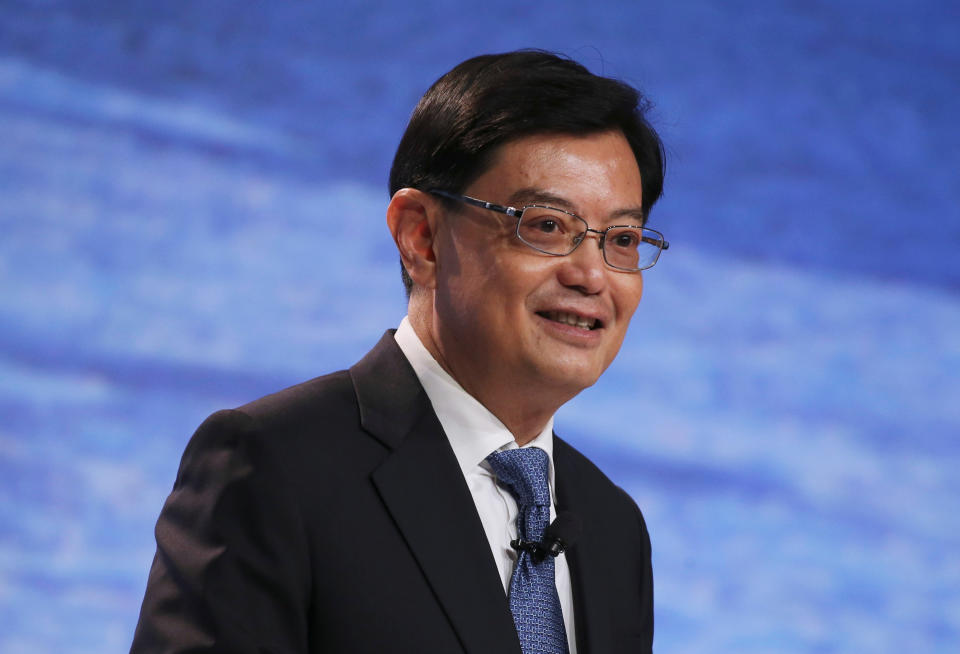Singapore is not expecting full-year recession at this point: Heng Swee Keat

SINGAPORE — Singapore is not expecting a full-year recession at this point, Deputy Prime Minister Heng Swee Keat said after the city-state reported economic growth slowed to its lowest in a decade in the second quarter.
There remains areas of strengths in the economy, and these include the information and communications sector, and the construction sector, Heng said in a Facebook post on Friday (12 July).
Heng, who is also the Finance Minister, said the latest advance GDP estimates “reflects the heightened uncertainties and risks in the global economy, especially with the US-China trade tensions.”
The government is monitoring the situation closely, and is working with employers and unions to prepare for all scenarios, Heng said.
“We must continue to focus on the medium and long term, even as we tackle the short term challenges posed by the current economic cycle and help those affected,” he added.
The Future Economy Council will continue with the industry transformation plans, build stronger enterprise capabilities, and make the most of the opportunities around Singapore, Heng said.
Singapore reported its economy grew 0.1 per cent year-on-year in the second quarter, according to flash estimates by the Ministry of Trade and Industry released on Friday.
The data, based on preliminary numbers from April and May, was below the 1.1 per cent forecast in a Reuters poll and the slowest annual growth since the second quarter of 2009, when it fell 1.2 per cent.
On a seasonally-adjusted and annualised basis, second-quarter GDP shrank by 3.4 per cent, compared with 3.8 per cent expansion in the first quarter.
This has prompted economists to warn that Singapore is facing greater risk of a technical recession.
“Probability of the MAS easing policy at the October meeting will increase if a recession materialises in 3Q and a US-China trade deal remains elusive,” Maybank Kim Eng analysts Chua Hak Bin and Lee Ju Ye said. They cut their 2019 GDP growth forecast to 1.1 per cent from an earlier 1.3 per cent.
A technical recession is defined as two consecutive quarters of quarter-on-quarter economic decline.
Trade and Industry Minister Chan Chun Sing also responded to the latest GDP report, saying that given its trade-dependent economy, “Singapore will be subject to the uncertainties of the global investment climate, and shifts in global supply chains brought about by the turbulent international trade environment.”
In a Facebook post, Chan said Singapore is dealing with longer-term shifts in supply chains and production patterns, and its strategy is not to artificially boost demand in general, but to “surgically help our companies and workers adjust to the new realities.”
Chan said the current challenges are different from the Asian financial crisis and the global financial crisis, where a sudden loss of confidence in global financial markets triggered a sharp downturn in the Singapore economy.
“We must therefore focus on our long term fundamentals of building real and new capabilities, expanding into new markets and acquiring new skills,” Chan said.
Singapore is focused on attracting high quality investments for the long term and its investment pipeline shows that it is on the right track, said Chan, citing “significant investments” announced this year by ExxonMobil, Linde, GSK, Dyson and the two Integrated Resorts.
Manpower Minister Josephine Teo also wrote in a Facebook post about the latest GDP data, saying that most business leaders and professionals “are not in a state of panic” as they know it is in the nature of business cycles.
Teo said there are still around 60,000 unfilled vacancies, with the financial services, professional services and infocomm technology among the top sectors looking to fill the 30,000 PMET (Professionals, Managers, Executives and Technicians) positions.
Related stories:
Singapore minister says economy a key issue as elections loom

 Yahoo Finance
Yahoo Finance 
